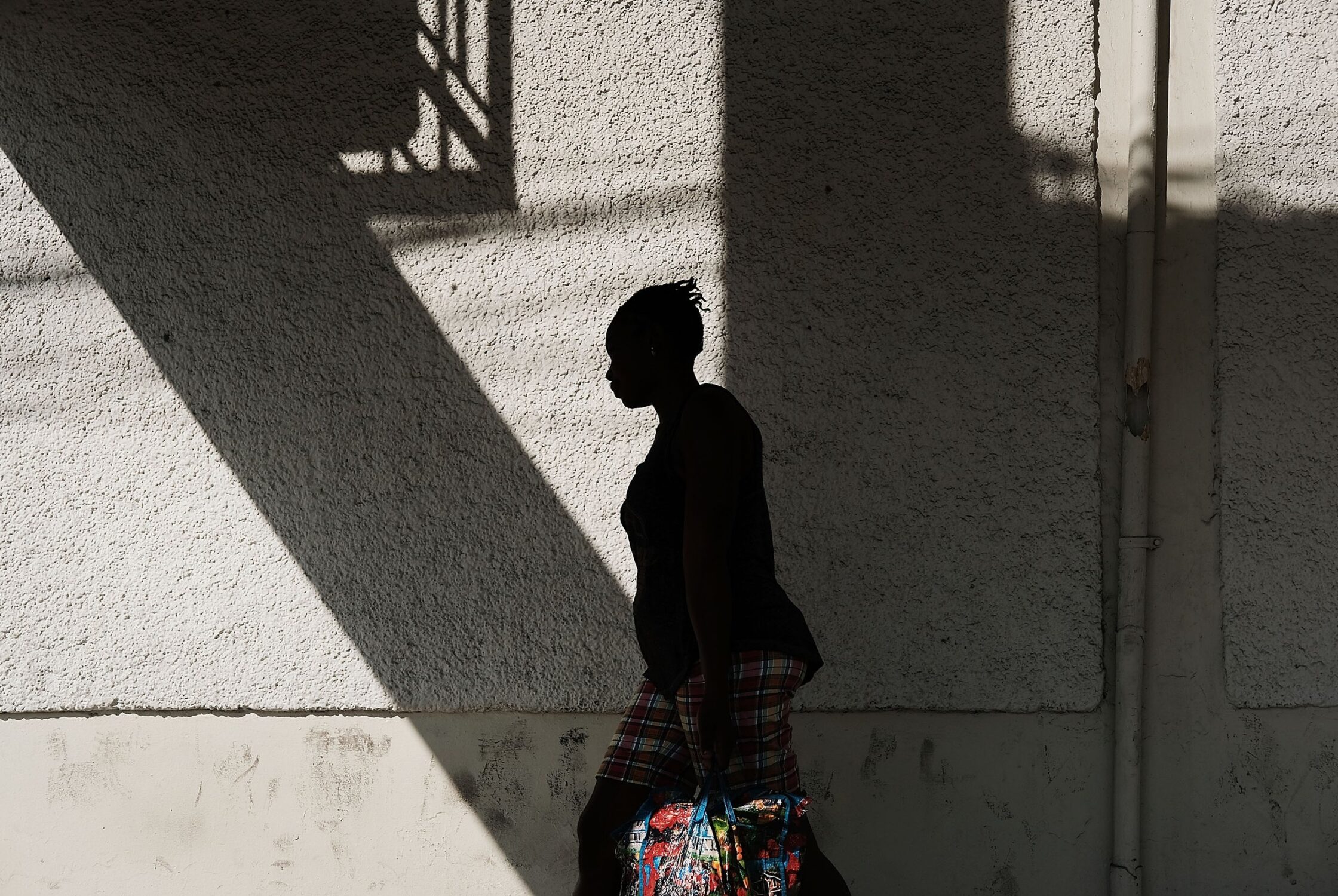Humanitarian Aid and Protection Pathways Needed for Haitians

Widespread gang violence and logistical challenges delivering aid in Haiti have recently exacerbated food insecurity and the spread of disease. Gang violence has both trapped and displaced Haitians: armed groups have blocked ports, roads, and businesses, and gangs have hurt civilians and burned and looted homes. Even as the country faces its worst humanitarian and security crisis in decades, Haitians continue to be deported to danger and refused access to refuge.
What’s Happening?
Haitian President Jovenel Moïse was assassinated in July 2021. The country was then struck the following month by a 7.2 magnitude earthquake, killing more than 2,000 people and damaging about 115,000 homes. The people of Haiti protested and called for political and economic change as gangs took increasing control over the country. In October, Prime Minister Ariel Henry, who has been leading the country with no constitutional mandate, made a formal request for foreign armed intervention.
Gender-based and sexual violence in Haiti is on the rise. An October 2022 report jointly published by the United Nations Integrated Office in Haiti (BINUH) and the Office of the United Nations High Commissioner for Human Rights (OHCHR) paints a startling picture of the reality on the ground. “Gangs use sexual violence to instill fear, and alarmingly the number of cases increases by the day,” said Acting Human Rights Chief Nada Al-Nashif upon release of the report. “The gruesome testimonies shared by victims underscore the imperative for urgent action.”
The security and humanitarian situation in Haiti is so dire that people cannot live their lives. Many cannot go to work or school, find shelter or fuel, nor get money from banks or health care at hospitals. The UN Children’s Fund warned in October that 2.4 million children may be out of school. According to the World Food Program (WFP), 4.7 million people do not have enough to eat, with 1.8 million people facing a food “emergency,” and 19,000 people experiencing “catastrophe,”—the highest classification for hunger levels—for the first time in Haiti. Hunger in rural areas is getting worse, leading to the adoption of crisis strategies, such as begging and having to sell animals to be able to eat. Cholera is resurging in Haiti.
According to a November 17 situation report from the Pan American Health Organization (PAHO)/World Health Organization (WHO), there are more than 9,600 suspected cases of cholera and more than 820 confirmed cases across four departments in the country. Children under four and people in their thirties are most impacted among those with confirmed cases. The actual cholera rates are likely much higher.
Though the UN Refugee Agency and UN High Commissioner for Human Rights have called on countries to stop returning Haitians to Haiti given the dire conditions on the ground, the Dominican Republic ramped up deportations in November, deporting more than 20,000 Haitians in just 9 days. In late November, the United States returned to Haiti most of a group of desperate people, including dozens of children, whose boat had reached the Florida Keys. The number of Haitians traveling through the dangerous Darien Gap is on the rise once again, and many Haitians are waiting in northern Mexico for a chance to seek asylum at the U.S. border, where Title 42, an unjustified public health authority barring access to asylum, remains in place.
What Must be Done?
Some U.S. policies have begun to help Haitians, but much more needs to be done.
Refugees International welcomed USAID’s Disaster Assistance Response Team (DART) deployment in October 2022 to assess escalating humanitarian needs. To circumvent port blocks to aid delivery, USAID and the State Department’s Bureau of Humanitarian Affairs established an airbridge to fly aid directly to Port au Prince from Miami, Panama City, and Brussels to help address the spread of cholera. However, the November 15 UN funding appeal for $145.6 million for Haiti relief efforts must be fully funded. As the appeal describes, the funding will support the emergency response for cholera and broader humanitarian assistance needs.
To help mitigate the spreading of cholera, donors should also increase health support materials, fuel to help reach vulnerable populations, and safe drinking water. Donors must provide additional emergency funding, particularly for food assistance needs and healthcare support. Local NGOs should be utilized in the humanitarian response and provided resources, recognizing their local expertise and programming perspectives.
Now that a U.S. federal court has ordered that Title 42 must end, the Biden administration must begin processing asylum seekers at the border. Further, the Biden administration should use its authority under section 235(a)(1) of the Immigration and Nationality Act to bring Haitians interdicted at sea to U.S. soil. As it promised it would, the Biden administration should also expand eligibility for and make more accessible the Haitian Family Reunification Parole Program.
Also in November, the Department of Homeland Security (DHS) extended TPS for some Haitians, protecting from return to Haiti those who arrived in the United States before 2011, in the wake of the 2010 earthquake, but not Haitians who arrived in the United States before July 29, 2021, who were made eligible for TPS because of the current security and humanitarian crisis, and whose TPS expires in February 2023. It is urgent that TPS is extended for this population as well and, given conditions on the ground, the Biden administration should redesignate Haiti for TPS so that Haitians who arrived in the United States since the summer of 2021 can enroll in the program.
Ann Hollingsworth is the Senior Director of Government Relations and Senior Policy Advisor at Refugees International. She conducted research in Port-au-Prince and hurricane-affected areas in Grand’Anse and Sud Departments in Haiti in February 2017 in the aftermath of Hurricane Matthew. Yael Schacher is Director for the Americas and Europe at Refugees International. She has reported on Haitian migration through the Americas and at the U.S. border.
Photo Caption: A woman walks down a street in Port au Prince, Haiti on February 10, 2018. Photo by Spencer Platt/Getty Images.